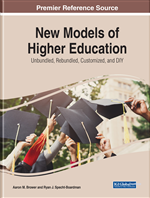Search
Results: 652
Inoculating the Public against Misinformation about Climate Change.
Effectively addressing climate change requires significant changes in individual and collective human behavior and decision-making. Yet, in light of the increasing politicization of (climate) science, and the attempts of...
On the relationship between personal experience, affect and risk perception
Sander van der Linden
Aug 09, 2018
Examining the conceptual relationship between personal experience, affect, and risk perception is crucial in improving our understanding of how emotional and cognitive process mechanisms shape public perceptions of climate...
How Accurate Are Accuracy-Nudge Interventions? A Preregistered Direct Replication of Pennycook et al. (2020).
Technique-based inoculation against real-world misinformation
In recent years, numerous psychological interventions have been developed to reduce susceptibility to misinformation. Inoculation theory has become an increasingly common framework for reducing susceptibility to both individual...
Fake news game confers psychological resistance against online misinformation
Abstract: The spread of online misinformation poses serious challenges to societies worldwide. In a novel attempt to address this issue, we designed a psychological intervention in the form of an online browser game. In the...
Discussing global warming leads to greater acceptance of climate science.
Climate change is an urgent global issue, with demands for personal, collective, and governmental action. Although a large body of research has investigated the influence of communication on public engagement with climate...
Countering science denial.
Sander van der Linden
Jul 03, 2019
Field interventions for climate change mitigation behaviors
Behavioral change is essential to mitigate climate change. To advance current knowledge, we synthesize research on interventions aiming to promote climate change mitigation behaviors in field settings. In a preregistered...
Long-term effectiveness of inoculation against misinformation
This study investigates the long-term effectiveness of active psychological inoculation as a means to build resistance against misinformation. Using 3 longitudinal experiments (2 preregistered), we tested the effectiveness of...
Motivating actions to mitigate plastic pollution.
Designing effective policy interventions to motivate mitigation actions requires more realistic assumptions about human decision-making based on empirical evidence from the behavioural sciences. We therefore need to consider...
Inoculating Against Fake News About COVID-19
The outbreak of the SARS-CoV-2 novel coronavirus (COVID-19) has been accompanied by a large amount of misleading and false information about the virus, especially on social media. In this article, we explore the coronavirus...
Technique-based inoculation against real-world misinformation.
In recent years, numerous psychological interventions have been developed to reduce susceptibility to misinformation. Inoculation theory has become an increasingly common framework for reducing susceptibility to both individual...
The future of behavioral insights
Abstract Socially minded nudges are the more sociable cousin of regular nudges: they reveal important information about other people's behavior, raise normative expectations about what is...
Sander van der Linden
Nov 22, 2018
Out-group animosity drives engagement on social media.
There has been growing concern about the role social media plays in political polarization. We investigated whether out-group animosity was particularly successful at generating engagement on two of the largest social media...
Communicating expert consensus increases personal support for COVID-19 mitigation policies.
The Gateway Belief Model (GBM) places perception of a scientific consensus as a key "gateway cognition" with cascading effects on personal beliefs, concern, and ultimately support for public policies. However, few studies...
The effects of communicating uncertainty on public trust in facts and numbers.
Anne Marthe van der Bles, Sander van der Linden, Alexandra LJ Freeman, David J Spiegelhalter
Feb 20, 2020
A Competency-Based Lens for Exploring Higher Education Opportunities
In the current fast-paced environment, learners want flexibility in timing and content as they seek relevant credentials to be successful. For institutions of higher education (IHEs) to be relevant, they must address the...
Higher Education Education Higher Education Social Sciences and Humanities Library and Information Science
Published by: IGI Global Scientific Publishing
Good News about Bad News
Recent research has explored the possibility of building attitudinal resistance against online misinformation through psychological inoculation. The inoculation metaphor relies on a medical analogy: by pre-emptively exposing...
Published by: Journal of cognition
|
|< |
< |
1 |

